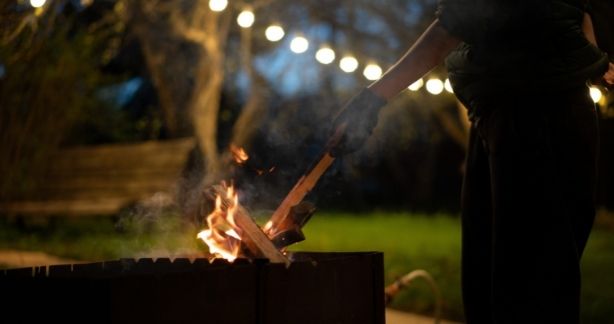Backyard bonfires are a great way to gather family and friends for a party, but they’re not always the best activities from an environmental standpoint. That’s why we’ve prepared these ways to reduce pollution from backyard bonfires. If you love a good backyard bonfire but worry about its impact on the environment, these tips are for you.
Only Use Dry Wood
When selecting firewood for your bonfire, only choose dry wood. Dry wood burns hotter and more efficiently, which releases fewer pollutants into the air. Additionally, never cut down live trees or branches for firewood, as this damages trees, and the wood doesn’t burn well, either. Live, fresh wood and branches are full of moisture and don’t burn efficiently.
Keep Bonfires Contained
A major risk that bonfires pose to the environment is flames spreading and becoming uncontrolled. Every year, many forest fires result from uncontrolled campfires and bonfires. Be responsible when lighting a backyard bonfire, especially if you live in an area that is densely wooded or poses other fire risks. Always keep your bonfires contained in a proper fire pit with stones, bricks, or another type of barrier surrounding the flames.
Don’t Burn Trash
It may be tempting due to the convenience, but you should never burn trash in your bonfire. When you burn trash like plastics and other materials in a bonfire, you’re directly releasing toxic gases like dioxins and BCPs into the air. Never burn trash in your fire pit—it’s much easier on the environment to sort your garbage and dispose of it in the proper trash or recycling receptacles.
Choose a Smokeless Fire Pit
If you’re investing in a new fire pit, choosing a smokeless option can go a long way toward helping the environment and reducing pollution. Smokeless bonfires are a better option for the environment and for the people sitting around them. These fire pits do more than prevent smoke in your face—they also help burn off creosotes more thoroughly than the average fire. Creosotes are chemicals used in wood preservatives that can be found in firewood. By burning off these creosotes more thoroughly, it means less chemicals that end up back in the environment.
Choosing these smart and responsible bonfire options can go a long way towards helping the environment. Make sure to use these ways to reduce pollution from backyard bonfires during your next bonfire. These tips will help you feel better and more responsible about your impact on the environment and offer one more step towards fighting pollution.






